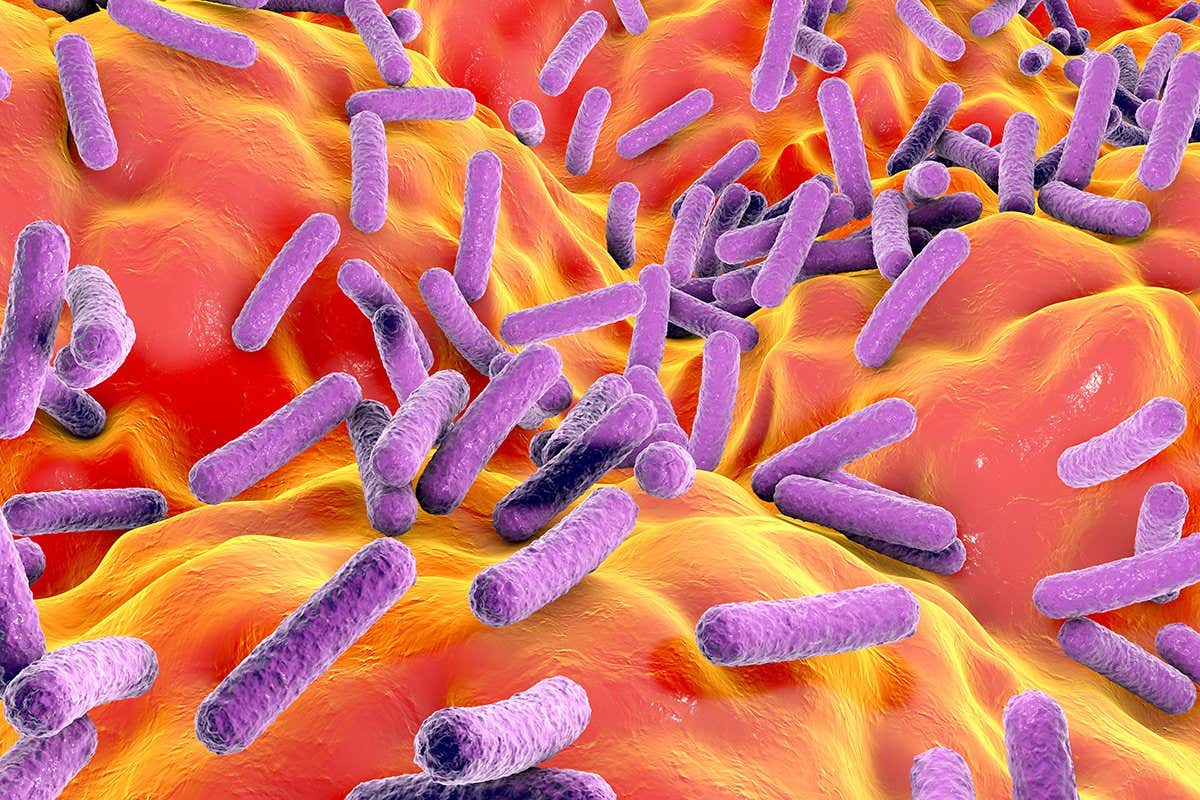Kamikaze bacteria explode with toxins
The term "kamikaze bacteria" refers to a phenomenon where certain bacteria sacrifice themselves for the benefit of their conspecifics by releasing toxins in a self-destructive manner.

The term "kamikaze bacteria" refers to a phenomenon where certain bacteria sacrifice themselves for the benefit of their conspecifics by releasing toxins in a self-destructive manner. This behavior has been observed in various studies and has implications for both understanding bacterial infections and developing new medical treatments.
Exploding Kamikaze Bacteria and Tc Toxins
A recent study led by Stefan Raunser, Director at the Max Planck Institute of Molecular Physiology, has shed light on the secretion mechanism of Tc toxins produced by pathogenic bacteria, such as those from the Yersinia genus, which includes pathogens that cause plague and tuberculosis[1][2]. These toxins are large molecules that need to cross several cellular barriers to reach and attack host cells. The study revealed that a small subset of bacteria, termed "soldier cells," are filled with these toxins and explode to release their deadly cargo, effectively sacrificing themselves to aid the spread and virulence of the bacterial population[1][2].
The secretion of Tc toxins by these soldier cells is controlled by a pH-sensitive type 10 secretion system (T10SS), which is a recently established class of protein export machinery[1]. The process is temperature-, nutrient-, and cell density-dependent, with a genetic switch that synchronizes toxin production with the conditions inside the host, turning normal cells into soldier cells[1]. This strategy is unique and exhibits characteristics such as differentiation and altruism, which are reminiscent of eusocial systems[1].
Engineered Kamikaze Bacteria for Cancer Therapy
In a different context, bacteria have been engineered to act as kamikaze agents against cancer. Researchers at the University of California, San Diego, modified Salmonella bacteria to produce anti-cancer drugs and self-destruct within tumors, releasing their cargo[3]. This approach, combined with chemotherapy, showed promising results in shrinking tumors in a mouse model for liver cancer[3].
Bacterial Suicide Mechanisms and Antibiotic Research
The study of bacterial suicide mechanisms is also important for the development of new antibiotics. For instance, the research group led by Anton Meinhart at the Max Planck Institute for Medical Research showed that toxin/antitoxin systems within bacteria can lead to programmed bacterial cell death, which could be harnessed for creating new broad-spectrum antibiotics[4].
Implications and Future Research
The discovery of kamikaze bacteria and their secretion systems opens up new avenues for medical research, particularly in the fight against antibiotic-resistant bacteria[1][2]. By targeting these soldier cells, it may be possible to develop treatments that are more effective against pathogenic bacteria. Additionally, the concept of using engineered bacteria to deliver therapeutic agents directly to tumors or other disease sites is an innovative approach that could revolutionize cancer treatment[3].
The findings from these studies are not only significant for understanding bacterial behavior and evolution but also for their potential applications in medicine. Researchers continue to explore the mechanisms behind these kamikaze bacteria and their implications for treating diseases caused by bacterial pathogens[1][2][3][4].
Citations:
[1] https://www.mpg.de/21414471/0118-moph-single-celled-kamikazes-spearhead-bacterial-infection-151445-x
[2] https://phys.org/news/2024-01-kamikaze-bacteria-soldier-cells-confer.html
[3] https://www.scientificamerican.com/article/kamikaze-bacteria-attack-deep-tumors-with-deadly-cargo/
[4] https://www.mpg.de/1247798/bacterial-suicide-mechanism
[5] https://arstechnica.com/science/2024/04/kamikaze-bacteria-explode-into-bursts-of-lethal-toxins/
[6] https://www.nature.com/articles/news.2008.1056
[7] https://www.sciencedaily.com/releases/2022/08/220803093924.htm
[8] https://twitter.com/arstechnica/status/1777403948581712028
[9] https://hospitalpharmacyeurope.com/news/editors-pick/scientists-find-kamikaze-bacteria/
[10] https://www.lemonde.fr/en/science/article/2022/12/26/kamikaze-bacteria-sacrifice-themselves-for-the-community_6009157_10.html
[11] https://arstechnica.com/civis/threads/kamikaze-bacteria-explode-into-bursts-of-lethal-toxins.1499956/
[12] https://communities.springernature.com/posts/danger-pathogen-may-explode-revealing-how-specialized-bacterial-cells-release-toxic-payloads
[13] https://www.sciencedaily.com/releases/2011/07/110727165135.htm
[14] https://www.chemistryworld.com/news/kamikaze-bacteria-travel-deep-inside-tumours-to-deliver-deadly-cargo/1010053.article
[15] https://www.zdnet.com/article/kamikaze-bacteria-to-fight-lethal-infections/